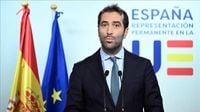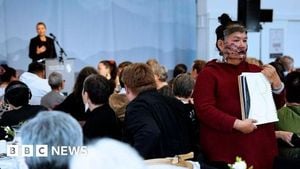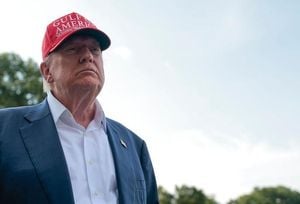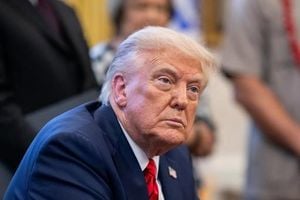Spain’s relationship with Israel and Venezuela has become the focus of heated international debate, as Prime Minister Pedro Sánchez’s government moves to assert its stance on human rights and foreign policy while facing mounting criticism from both domestic and international actors. In recent weeks, Spain has implemented a sweeping arms embargo against Israel, drawn scrutiny for its diplomatic approach to Venezuela, and become embroiled in controversies ranging from sports boycotts to accusations of antisemitism.
On September 23, 2025, Spain’s Council of Ministers approved a “total” arms embargo on Israel, marking a significant escalation in the country’s response to the ongoing conflict in Gaza. According to El Pais, Economy Minister Carlos Cuerpo declared, “This decision is further evidence of the political commitment of the government and the international leadership of Spain and the prime minister for respect for human rights.” The embargo, which was first announced by Sánchez, extends far beyond previous partial restrictions, banning not only arms exports but also the transit of fuel and imports of products and services from the occupied territories.
Spain’s left-wing coalition partner Sumar hailed the move as historic, stating that Spain is the first country to prohibit arms exports, fuel transit, and imports in such a comprehensive manner, thereby “paving the way for the EU.” Yet the timing of the embargo drew sharp criticism from within the government’s own ranks. Podemos leader Ione Belarra argued, “Arms embargoes are implemented before war crimes are committed, not with 60,000 innocent victims.” The conservative opposition People’s Party (PP) withheld its support, citing security concerns over the Israeli components used by Spanish security forces. Parliamentary spokesperson Ester Munoz cautioned, “I ask that it not be trivialized; it is a complex issue.”
Government spokesperson Pilar Alegria reiterated Spain’s commitment to Palestinian statehood, recalling that Sánchez had underlined at the UN the urgency of recognizing the state of Palestine. “Spain did so in May, and now we see many countries such as France, Portugal, Canada, the UK, and Australia following suit. Spain has played a key role from the start in supporting coexistence through a two-state solution,” Alegria said.
Spain’s embargo follows a pattern of growing assertiveness on the world stage, particularly regarding Israel. Over the past year, Spain has joined Norway and Ireland in forming what some observers call “one of the European Union’s sharpest diplomatic triangles,” noted for their hostility toward Israel, as reported by Haaretz. Ireland has closed its Israeli embassy, while Norway has withdrawn nearly all sovereign wealth fund investments from Israeli companies. Against this backdrop, Spain launched what critics describe as an “almost senseless diplomatic offensive” that, in the eyes of some, crossed into antisemitism.
Sánchez has been outspoken in his support for pro-Palestinian activists who protested Israeli participation in the Vuelta cycling race, disrupting several stages, including the final in Madrid. Spain even called for Israel’s exclusion from international sports competitions, arguing this would “stop the barbaric Israeli government and prevent Israel from whitewashing its crimes through popular sports events.” The city of Barcelona, unable to participate in this year’s protests due to the race route, announced it would host the first stage of the 2026 Tour de France and demand the exclusion of the Israeli team.
The diplomatic rift extended into other arenas. In chess competitions, Spanish organizers initially required Israeli participants to compete without national symbols; when the World Chess Federation intervened, the organizers instead hung only the Palestinian flag, prompting all seven Israeli participants to withdraw. Spain also blocked ships carrying supplies for Israeli operations in Gaza, with Sánchez arguing that these were among the few measures available to him—famously quipping, “he doesn’t have a nuclear bomb to stop Israel.” This statement drew immediate condemnation from Israeli Prime Minister Benjamin Netanyahu, who called it genocidal, prompting Spain to summon a senior Israeli diplomat for a rebuke. The tit-for-tat escalated as Israeli Foreign Minister Gideon Sa’ar canceled entry visas for two Spanish politicians, and Spain reciprocated by revoking visas for Israeli lawmakers Ben-Gvir and Smotrich.
Despite the government’s hard line, public sentiment in Spain is far from monolithic. Madrid, in particular, has maintained a cosmopolitan atmosphere, with locals expressing criticism of Israeli policies but consistently condemning Hamas and supporting Israel’s right to exist. Events in the capital, such as the Vuelta race, saw pro-Israel groups facing hostility from large pro-Palestinian crowds, but also receiving police protection. As one Madrid resident, José Álvarez, told Haaretz, “We are not antisemitic, even though we have strong criticism of the Israeli government, Netanyahu and its actions in Gaza. But we’re glad the Israelis didn’t withdraw.”
The government’s approach has not gone unnoticed by its allies. The United States, in particular, has expressed growing frustration with Spain’s foreign policy. This comes as Spain’s current prime minister, Pedro Sánchez, is criticized for his friendly stance toward China and his refusal to increase NATO defense spending above 2 percent, despite other allies pushing for a 5 percent commitment. The US has also taken aim at Spain’s former prime minister, José Luis Rodríguez Zapatero, over his close ties with Venezuela’s Maduro regime. According to El Debate, several US Republican Congressmen and Senators are preparing a statement against “Friends of Nicolas Maduro,” potentially including Zapatero. There is speculation that the US State Department could deem Zapatero’s relationship with Maduro’s regime “unacceptable,” possibly leading to sanctions under the Global Magnitsky Act.
Zapatero, a Socialist, has long been a controversial figure regarding Venezuela. As prime minister in 2005, he brokered a $1 billion weapons deal with Venezuela and has acted as a mediator in political crises, most recently in the allegedly rigged May 2025 elections. Critics accuse him of lending international legitimacy to a regime widely condemned for human rights abuses, electoral fraud, and involvement in drug trafficking. Allegations—though unproven—persist regarding Zapatero’s business interests in Venezuela, including rumors of gold mine ownership, which he denies. Earlier this month, US Deputy Secretary of State Christopher Landau publicly criticized Zapatero and hinted at the possibility of revoking his US visa.
On September 22, 2025, Javier María Pérez-Roldán, lawyer and secretary of the conservative NGO Hazte Oír, reported alleged connections between Maduro, Zapatero, current Spanish PM Pedro Sánchez, and the Socialist Party (PSOE) at the UN in Geneva. He described opaque networks of influence and financing linking the Spanish Socialists and Venezuela. These developments have only added fuel to the fire of political contention, both within Spain and abroad.
Meanwhile, the impact of Spain’s diplomatic moves reverberates through daily life. Israeli and Jewish residents in Madrid report a shift in public attitudes following the government’s pro-Palestinian stance. Tami and Aviv Mizrahi, owners of the Israeli restaurant “Barganzo,” described to Haaretz how their business suffered after October 7, with a 75 percent drop in revenue and a wave of online harassment. Yet, they remain resilient. “I refuse to be afraid. I put the Israeli flag on the chef uniforms so customers see that maybe we were hit, but we always rise,” Aviv said. Their experience echoes the broader challenge facing Spain: balancing a principled foreign policy with the realities of a diverse society and a complex international landscape.
As Spain forges ahead with its assertive new direction, it finds itself at the crossroads of global diplomacy, domestic debate, and the shifting sands of public opinion. The world will be watching to see how Sánchez and his government navigate the mounting pressures from allies, adversaries, and their own citizens.




